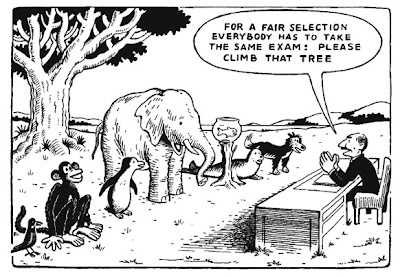I've started a bandcamp page as a place to keep my band's rough cuts (and maybe eventually some polished studio tracks). One track from our first gig this past Saturday is already posted. Check it out here!
More audio and maybe some videos to come.
Monday, December 19, 2011
Friday, December 16, 2011
Christopher Hitchens died this week
The world lost an irreplaceable writer when Christopher Hitchens finally lost his battle with cancer this week. Only 62 when he died, Hitch wrote books, essays, articles, and was still churning out content in the weeks leading up to his death. The love has been pouring out of the media, particularly the publications he wrote for like Vanity Fair, Atlantic, and Slate.
His Slate editor did a lovely round-up of some of his best stuff through the years, including his scathing obituary of Jerry Falwell. (It's incredible; here's the first line: "The discovery of the carcass of Jerry Falwell on the floor of an obscure office in Virginia has almost zero significance, except perhaps for two categories of the species labeled 'credulous idiot.'") And don't miss Hitch's instructions on how to make tea. (John Lennon and Yoko Ono did it wrong, apparently.)
But my favorite is this list of the 15 most memorable things to come out of his pen. He was an incredibly smart, concise writer. Some of the shorter favorites:
"What can be asserted without evidence can also be dismissed without evidence."
"If you gave [Jerry] Falwell an enema, he could be buried in a matchbox."
And, of course,
"The four most overrated things in life are champagne, lobster, anal sex and picnics."
We'll miss you, Hitch.
Wednesday, December 7, 2011
The problem with standardized testing
First of all, there are many problems, too many to list in this blog post. But if you feel like getting up in arms today about standardized testing (why not?), read this article in today's Washington Post. A school board member -- a successful, wealthy adult -- took his state's 10th grade standardized test. He failed miserably, casting light on the specific problem of practical usage in these tests. What possible value could these questions (and therefore these test results) have for predicting aptitude, intelligence, or future success? Here's an excerpt from an email he wrote to the author of the article:
“If I’d been required to take those two tests when I was a 10th grader, my life would almost certainly have been very different. I’d have been told I wasn’t ‘college material,’ would probably have believed it, and looked for work appropriate for the level of ability that the test said I had.
“It makes no sense to me that a test with the potential for shaping a student’s entire future has so little apparent relevance to adult, real-world functioning. Who decided the kind of questions and their level of difficulty? Using what criteria? To whom did they have to defend their decisions? As subject-matter specialists, how qualified were they to make general judgments about the needs of this state’s children in a future they can’t possibly predict? Who set the pass-fail 'cut score'? How?”
“I can’t escape the conclusion that decisions about the [state test] in particular and standardized tests in general are being made by individuals who lack perspective and aren’t really accountable.”
In a nutshell:
I don't know the answer. But while "standardized testing" has become an evil word in American education, we continue to use it, flaws and all. And the problem intensifies lower down in the socioeconomic food chain. At this point, you'd better hope you're a monkey.
“If I’d been required to take those two tests when I was a 10th grader, my life would almost certainly have been very different. I’d have been told I wasn’t ‘college material,’ would probably have believed it, and looked for work appropriate for the level of ability that the test said I had.
“It makes no sense to me that a test with the potential for shaping a student’s entire future has so little apparent relevance to adult, real-world functioning. Who decided the kind of questions and their level of difficulty? Using what criteria? To whom did they have to defend their decisions? As subject-matter specialists, how qualified were they to make general judgments about the needs of this state’s children in a future they can’t possibly predict? Who set the pass-fail 'cut score'? How?”
“I can’t escape the conclusion that decisions about the [state test] in particular and standardized tests in general are being made by individuals who lack perspective and aren’t really accountable.”
In a nutshell:
I don't know the answer. But while "standardized testing" has become an evil word in American education, we continue to use it, flaws and all. And the problem intensifies lower down in the socioeconomic food chain. At this point, you'd better hope you're a monkey.
Subscribe to:
Comments (Atom)


